From market trader to movie maker: Laurence Myers, the man who signed the rock’n’roll superstars
He once represented the likes of David Bowie and Mick Jagger, and his new book reveals what it was like to be a Sixties mover and shaker. But he is also the brains behind the new Judy Garland biopic. David Lister catches up with him

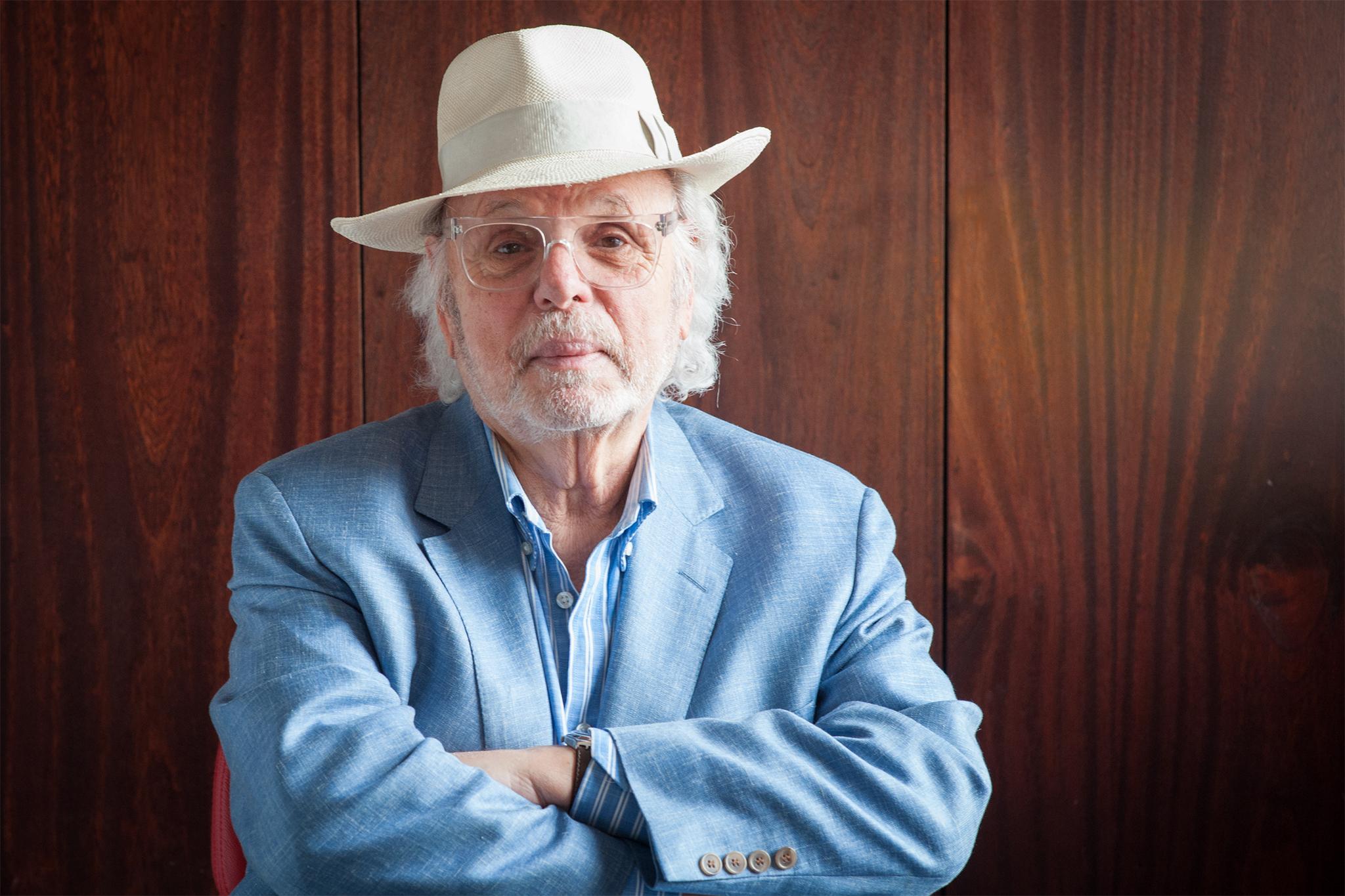
It’s a mystery that Laurence Myers isn’t a household name. You’d think that the man who signed David Bowie (and owned the Hunky Dory and Ziggy Stardust albums) would have a revered and publicly acknowledged place in music history. And Bowie’s success is only one notch in his gun. This guy also looked after The Rolling Stones. He was the fixer who the legendary (not always in a good way) Allen Klein sent in to The Beatles’ Apple corps to sort out the mess. He was the man who sat open-mouthed while the legendary (definitely not in a good way) Sixties pop promoter Don Arden threatened to throw him out of the window.
He was one of the few who hit it off with Elvis’s forbidding manager, Colonel Tom Parker. The reason: both Myers and the colonel had started their careers as market grafters.
Perhaps most importantly he was the man who was instrumental in forcing record companies to change the appallingly Draconian contracts they tied their stars to (a pop single sold for six shillings and eight pence in old money, the record company made 14 pence profit, and to take one notable example, The Beatles received one old penny per single sold – shared between the four of them). Myers was also was behind a landmark court case that stopped music publishers exploiting artists. Elton John was one of many who benefited from that.
And then, after playing a part in the careers of so many Sixties and Seventies superstars, and nearly wooing Stevie Wonder away from Motown, he moved presciently to form GTO Records, the company which signed Donna Summer and Billy Ocean and was at the heart of the New York disco boom.
Not bad for the man who started life above a sweetshop in London’s Finsbury Park, worked at the Petticoat Lane market in the East End, became, somewhat reluctantly a chartered accountant, and then eased into pop management. But even the accountancy had its memorable moments, particularly in hindsight. Such as when he tried advising Mick Jagger on pensions. “Pension!” the young Jagger replied. “Look Laurence, I’m not going to be singing rock’n’roll when I’m 60!”
It’s a lot of history. So, when I meet Myers for a coffee, which ends up lasting nearly two hours, I ask the still youthfully vivacious, still mischievous, 83-year-old, why it has taken him so long to write his memoir. “I’ve been busy,” he replies with the humorous Jewish understatement that characterises much of his conversation and even the title of his book: “Hunky Dory (Who Knew?)“
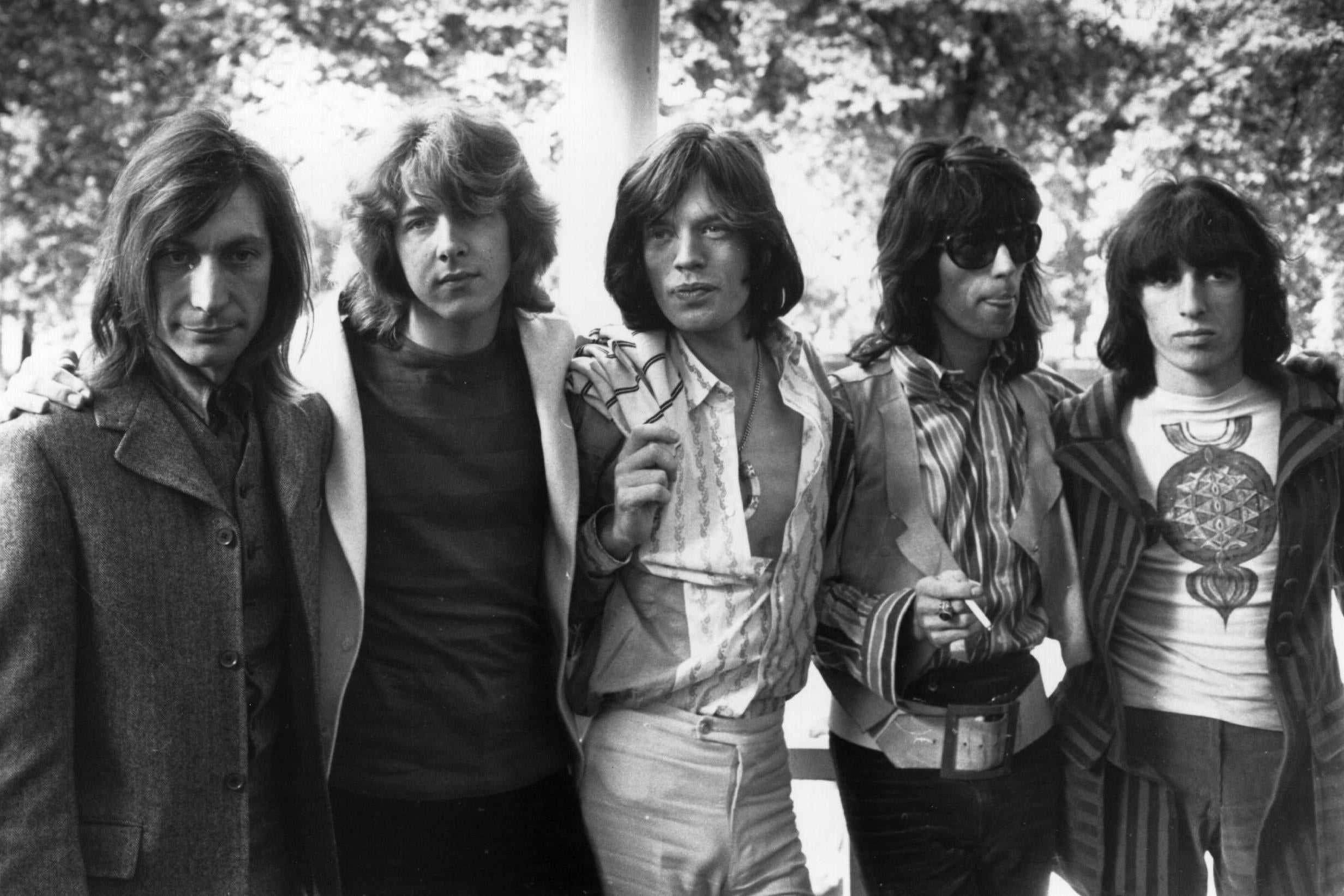
Who knew? Is a running theme of much of my chat with Myers. One of his many asides in speaking of the social changes since the Sixties and now is that banks used to return used cheques with your bank statements. “I threw away all the cheques signed by every member of The Rolling Stones. Can you imagine what they would be worth now.” A lot, but probably not as much as the limited edition Bowie Promo disc he made in the early Seventies. He threw away his copies of that too, but others retained theirs, and one recently changed hands in the US for $10,000.
Bowie… Myers has a lot of golden memories about the legend he signed because he recognised after Space Oddity that here was a great songwriter. “My passion was always songwriting,” he says,” and that’s why I signed David. And I liked that he didn’t just write love songs. And he didn’t sing in an American accent, as so many British singers did back then. We got on very well, one of the reasons was our shared admiration for Anthony Newley. But I went to see him on stage.
He needed a persona, and I’m sure that’s why his stage act became so good when he found Ziggy Stardust
Here he leans across the table at the Groucho club where we are talking, and confides: “He was rubbish. He was simply terrible on stage. No energy, no dynamism. He needed a persona, and I’m sure that’s why his stage act became so good when he found the Ziggy Stardust persona.”
But if David, in Myers’ view, lacked dynamism then, the person accompanying him when they met, didn’t. “It was Angie Bowie who really had the energy and dynamism, and David didn’t. It was Angie who wanted to change his then manager which led to me signing him.. She had the drive. Her contribution to his success is still really underrated.”
Myers and Angie still know each other, and she says now: Laurence took a big chance on David when the record business was not interested in him.”
Myers can vividly recall when the couple came to see him. “They looked identical, the same make-up, the same dyed red hair. I was concerned about David’s androgyny. He had just released an album (The Man Who Sold the World) with him, blond-wigged, on a chaise-lounge in a dress on the cover. The received wisdom then was that young girls bought records and they might not go for this. I raised the androgyny with him. David paused a bit then said: ‘Don’t worry about that, Laurence. I know what I’m doing’.”

Myers was closely involved with his stars but didn’t adopt their lifestyle. He tells a delightful story about how he invited David and Angie to his home in St John’s Wood, which he had bought with his wife Marsha (married in 1962 and still going strong as a couple). At the time the Bowies were living at Haddon Hall in Kent in an extreme lifestyle that involved many drugs and many sexual partners of both sexes. A beaming Myers showed them round his home, hoping to impress with his middle-class solidity.
Iggy was very charming and thanked me most politely. But he repaid me by leaving burn marks on our carpet where he had made little fires, no doubt to warm spoons for eating soup
“David was very polite and charming, but he must have been laughing up his sleeve. It was all very John Lewis. I was fine with it. I had a wife and three kids. I was in the office at 9 every morning. I was very solid.” In that office Myers had a sign on his desk saying “Art for art’s sake – money for fuck’s sake”. He recalls: “The first time he came to my office, David picked that sign up and looked at it. I thought he would disapprove, but he laughed and said: ‘I like that, I’ll bear it in mind.’”
Myers could perhaps be a little naïve about the contrasting lifestyles, or he would not have allowed Iggy Pop to stay at his home, while he was away. As he recalls in the book: “Iggy was very charming and thanked me most politely. But he repaid me by leaving burn marks on our carpet where he had made little fires, no doubt to warm spoons for eating soup.”
Without going into the very convoluted business side of the Bowie arrangement, Myers relinquished much of his interest after the release of Ziggy Stardust for a not inconsiderable £500,000. But though the Ziggy album had been released, it was still before the real explosion in Bowie popularity. I asked Myers if he had regrets about that.
“Well,’’ he says, “you have to remember that £500,000 was an awful lot of money then. But I did learn a lesson. In subsequent deals I’ve always kept 10 per cent.”
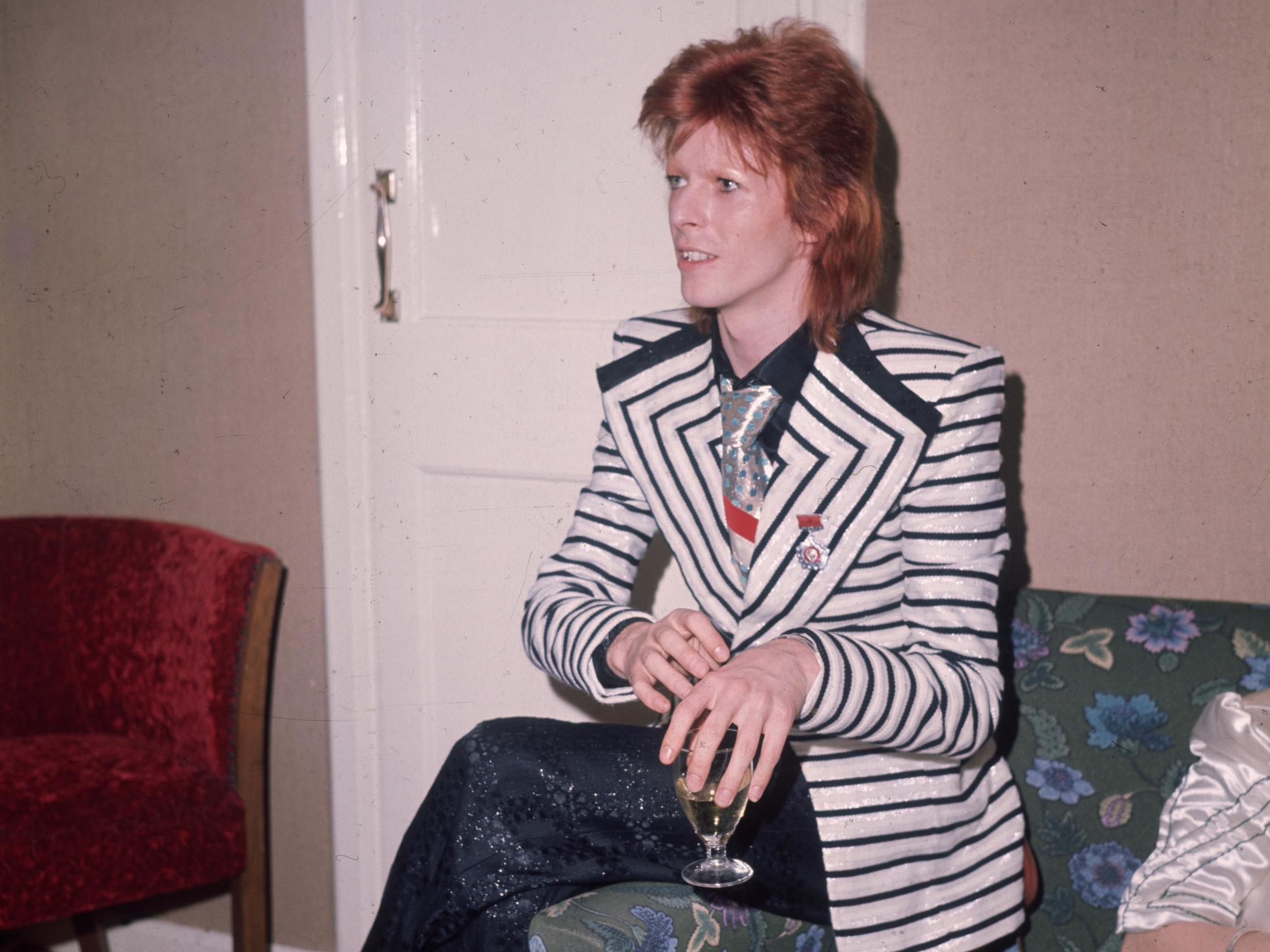
I was interested to discuss Myers’ early years, before the superstar connections. We talk about how – unimaginable to parents now – children were allowed back then to go out and play all day, without their mothers even knowing or worrying about where they were. “I played on bomb sites,” he says. “It was such fun for a child to play on bombsites.” He shared a room with his brother (the future founder of the Café Rouge group) until they were 18, and recalls how they lived opposite the famous cinema the Astoria, Finsbury Park. “It had a skyline around the edge of the auditorium, the foyer had Andalucian tiles.”
The Astoria later became the Rainbow, a key rock venue, where I myself saw Bowie perform at the start of his Ziggy phase.
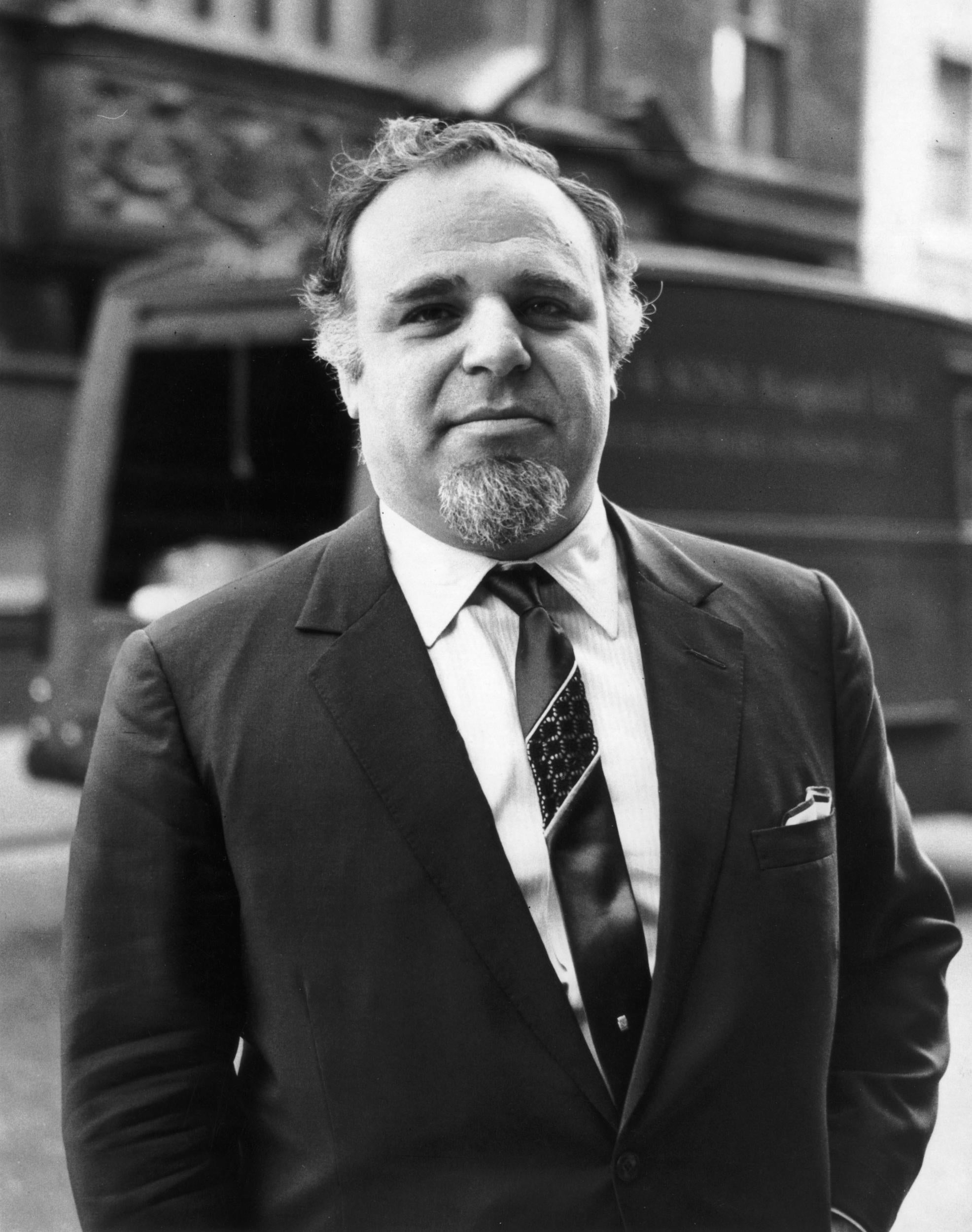
I ask Myers about that meeting with Don Arden, the larger than life, (which can be a synonym for thuggish) pop manager who was the father of Sharon Osbourne. Myers and Sixties pop producer Mickie Most went to see Arden to make the not unreasonable request that Arden actually pay their clients (The Animals) what he owed them. Arden got hold of the waste paper bin and hurled it out the window. Arden then growled at Myers: “Listen, you little pisher, get out of my fucking office or you’re next out of that window.” The Animals were never paid.
Interesting and unusual was Myers’ long friendship with Allen Klein, the American who took control of the finances of The Beatles and Rolling Stones, and ended up falling out with them. Myers still won’t hear a word against him, and spoke at his funeral. “I know Mickie hates him,” he says. “He hates him! And so does McCartney. And yes he could be a bully in business dealings. He didn’t want to be liked. He taught me a huge amount. He was very kind to me and my family. Our families were close. He gave me The Rolling Stones as a client and The Beatles as a client.”
Two vignettes concerning Klein illuminate the book. In the first, Klein told Myers he wanted to take him out to dinner as a thank you, and Myers should choose the restaurant. He did, an expensive dinner dance establishment, Les Ambassadeurs, off Park Lane. Yes, dinner dances once upon a time were a thing.
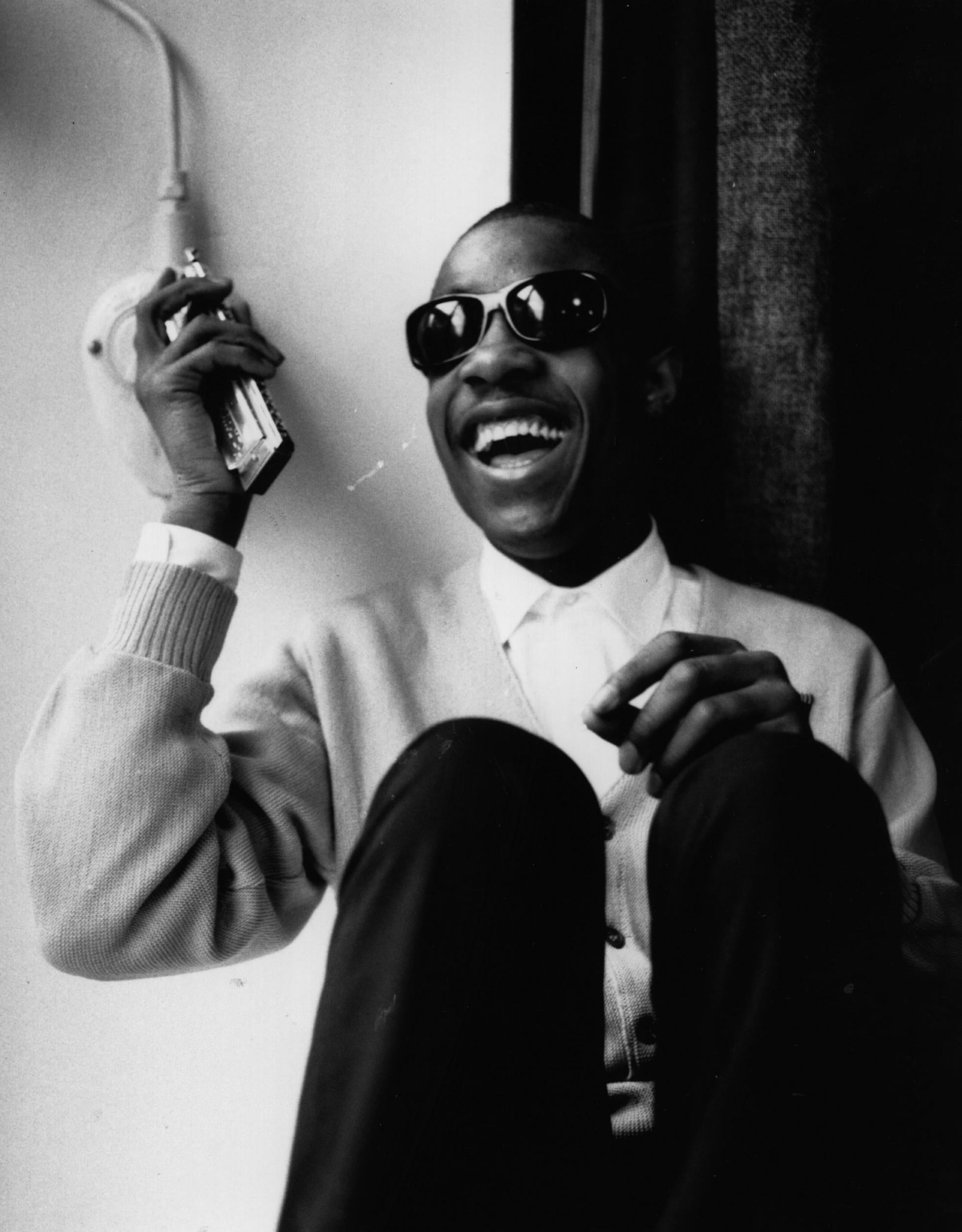
Like something out of a Larry David sitcom, both Myers and Klein tried to avoid paying at the end. Klein’s wife, Betty, whisked him on to the floor to dance, even though Klein hated dancing. Myers’ wife, Marsha, forbade her husband to pay as Klein had said the meal would be on him. So, Myers went to the loo, but when he returned the Kleins were still on the floor, so Myers reluctantly settled the bill. “Why on earth did you do that, an exasperated Marsha asked him. “Because,” said Myers: “Allen could dance all night, how long could I pee for?”
Myers also paints the picture of how he and Klein helped artists out of their Draconian recording contracts. The two of them went to meet the old school Decca chairman Sir Edward Lewis, and Klein began the meeting by refusing the proffered tea and saying simply: “The Rolling Stones are not going to make any more records for you.”
Decca was stunned. Klein then turned to each of the five Stones in turn, all of whom had been carefully rehearsed by him, and all of whom had been told to look “sullen and angry”. They all said the rehearsed words which made Decca cave in and make major alterations to the deal.
Sixties recording contracts were certainly in need of a Myers and a Klein to clean them up. Myers says: “Royalties, already very low, were paid on 90 per cent of sales because historically records had once been made from very breakable shellac, and there was an allowance made for broken records. The contracts were not changed when records began to be manufactured with more durable vinyl. All recording costs were deducted out of the pitiful royalties that were paid, even if the record companies used their in-house studios. And so it went on.”
So the superstars back then were nowhere near as wealthy as we might believe. Myers relates a graphic example of this. When Stevie Wonder was touring the UK in 1971 he was thinking of leaving Motown and came to see Myers. What clinched the meeting was that “Stevie was hankering after a state-of-the-art Sony music player. He was 20, and unbelievably, he couldn’t afford to buy it for himself.
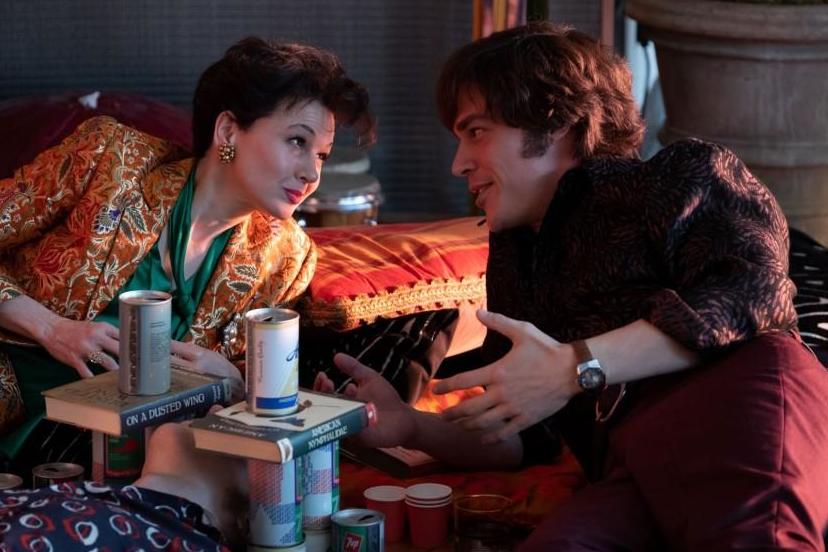
“I was amazed. He had already released My Cherie Amour and For Once in My Life. And so we bought the gift and Stevie came to see me. That first meeting was memorable because Stevie felt our faces.’’
Stevie Wonder didn’t make the transition from Motown to Myers in the end. Myers believes that at Wonder’s 21st birthday party in Detroit, the Motown bigwigs changed his mind. Myer’s main regret about the pursuit of Wonder now – “I never really blamed Stevie for what he did, although because of him I missed seeing Arsenal win the double.”
Myers has a never-ending supply of anecdotes from the era, though there is one of his discoveries he refuses to talk about, Gary Glitter. “He is,” he says, “persona non grata as far as conversation is concerned and as far as the book is concerned.”
One might wonder which of these many superstars made him the most money of his career. The answer is it was none of them. Myers’ biggest windfall came from his most brilliant idea, a concept which is still very much with us, and which more than one generation has grown up with as part of the musical landscape – compilation albums.
Before 1972 there were no compilation albums, featuring different artists from different record labels. Despite considerable resistance from the major labels, Myers started Arcade records and the budget compilation album (some years later to spark Richard Branson into linking with EMI to start the Now, that’s What I Call Music! albums). Myers also had a fierce rival in the K-Tel label, and there was much spying between the two companies in the rush to get the first compilation album on the market.
Arcade had a very simple genesis. “I used to make my own cassettes of music I liked by different artists and also made compilations requested by friends.” Fast forward to the Seventies and “over the years I persuaded major record companies to license Elvis, the Rolling Stones, The Beatles, Kinks The Beach Boys, Diana Ross…”
The list goes on. Rivals feared that Myers had a secret market research department helping to choose the less obvious compilations. In fact, he browsed the record departments of major department stores and asked the people behind the counter what was selling well in the budget record department.
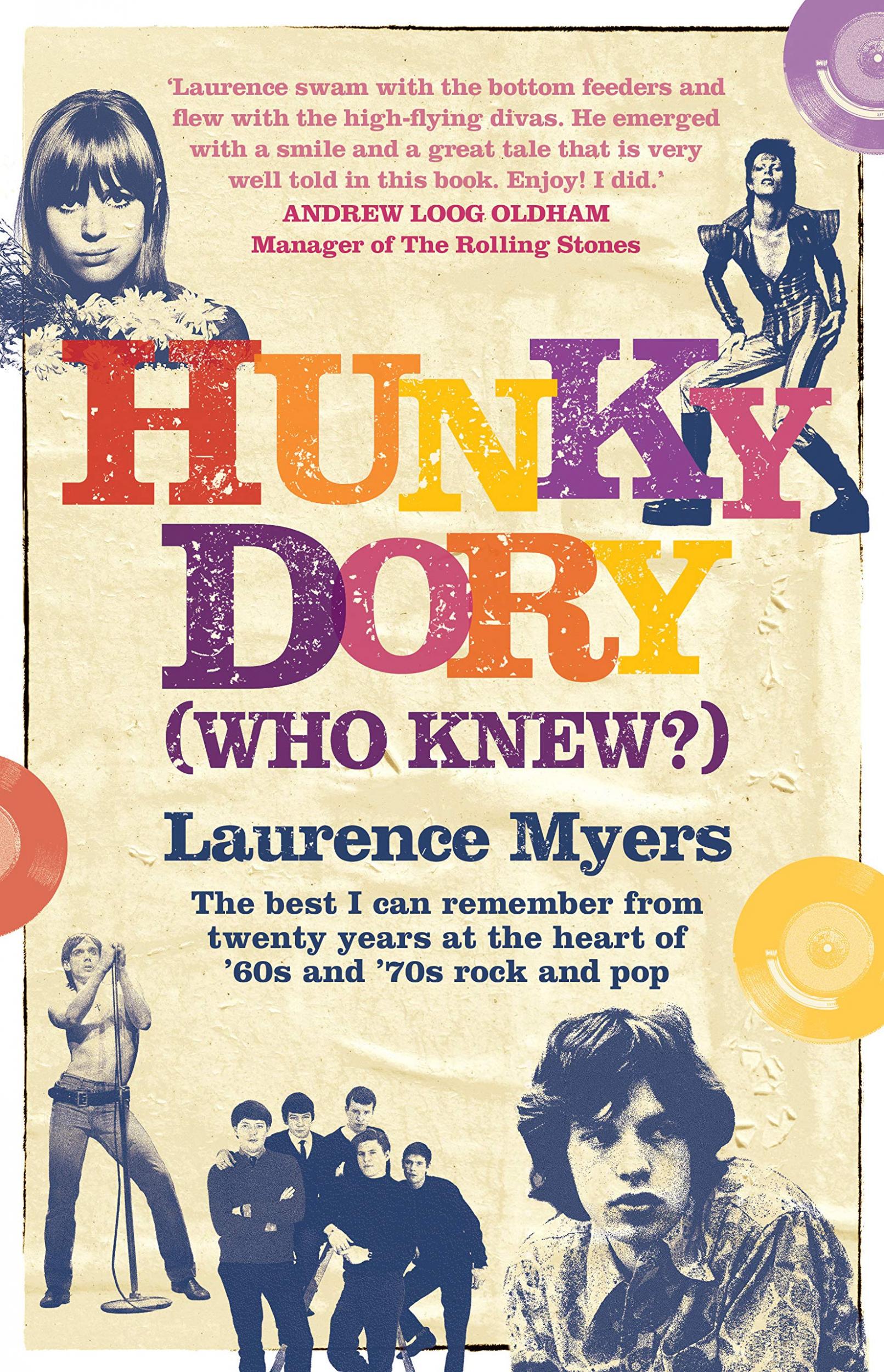
Myers no longer has much involvement in the music business, but he isn’t twiddling his thumbs. He has moved his talents to the movie business, and is executive producer on Judy, the Judy Garland biopic starring Renee Zellweger. It was Myers who saw an early version of the original play on which the film is based, put it on in the West End and on Broadway and acquired the film rights. “I can boast about that a little.”
He was ever the man of ideas that were well ahead of their time. Just one seems to have eluded him — the X-Factor style reality TV show. He dislikes that “people who vote from home are often influenced by the contestant’s back-story…and the shows are bad for the business; they are unfair competition for artists who are striving for success the hard way, working for years to try to capture a following.”
Then, in true Myers style, he adds sotto voce: “I’m also jealous that I have no financial interest in the shows.”
‘Hunky Dory (Who Knew?)’ by Laurence Myers is published by B&B Books and was released on 4 October
Join our commenting forum
Join thought-provoking conversations, follow other Independent readers and see their replies
Comments
Bookmark popover
Removed from bookmarks